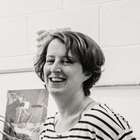The Evidence Support Initiative launch
Posted Feb. 11, 2021 by Amber GriffithsPolicy decisions that take scientific evidence into account are critical for dealing with the biggest issues we face. There is solid evidence for how best to address climate change, emerging diseases like Covid-19, and inequality for example, yet this evidence is often inaccessible to those outside scientific institutions, and as such is underutilised by policy makers. Instead of using the scientific literature, people outside academic institutions tend to use free and easier-to-read sources of information, which may be less reliable and more likely to be biased.
In the UK, some institutions exist to help with this problem, for example the Parliamentary Office of Science and Technology compiles briefing notes on scientific issues for Members of Parliament, and the House of Commons Library is staffed by people with knowledge of how to find and use scientific evidence. Many countries have similar arrangements for their Parliaments/Governments. One pervasive problem however is that support of this type is usually only available for central Government. In the UK and other countries, power is being devolved to lower levels of governance, specifically parish, town and county councils, largely led by central Government policies to get work done cheaply (e.g. parish/town councillors are unpaid, county councillors get paid a relatively small stipend). Councillors now hold considerable power for local decision making, yet at these levels there is no support for how to access and use scientific evidence in policy making.
We’ve been awarded a small amount of seed funding from Civic Square’s Dream Fund to pilot an idea that’s been ticking around our heads for the last year. We want to develop a system to encourage and facilitate scientific researchers to work with their local councils, providing on-demand advice on scientific issues to fit the needs of councillors, and perhaps also passing on the skills to find and use scientific information.
It’s an amalgamation of three bits of experience:
- Since 2015 we have been developing the AccessLab model - workshops pairing people who have questions about science with scientific researchers, to co-research and learn to access and use scientific information. This new approach to citizen science has been hugely successful, with participants including councillors, doctors, journalists, librarians, activists and more, who have used the workshops to gather evidence for policy changes, environmental court cases, and making documentaries for example. We often get councillors (UK local government) signing up, who tend to come with questions that are directly relevant to policy decisions - and have had some nice success stories from this, resulting in actual policy change [e.g. see the S2 text supplementary case study in the AccessLab publication]
- In 2008 I worked at the Parliamentary Office of Science and Technology (POST) as an advisor, briefing MPs on the risk of wildlife diseases (much like Covid-19). This position was a secondment from my PhD, full time for 3 months, based in UK Parliament, supported by my PhD funder. It was invaluable for learning how the political system works, and inadvertently it taught me how to design my research so it could be used by policy makers. We think council placements could be similarly valuable for researchers to learn how local policy decisions are made, how their research skills for finding and assessing evidence are highly valuable, and also to understand first hand the issues with research accessibility.
- I spent just under a year on a parish council, leaving in December 2019 (the most local form of governance in the UK), and Dr. Jo Garrett (a collaborator for this pilot idea) has spent nearly three years on a town council (town and parish councils are just different names for the same thing, there are a few options for what they are called). There is huge scope for tangible change but little awareness of the need for scientific evidence, nor the time or money to enable councillors to access and make use of this evidence or connect with scientists who could help. Simply building new links in communities between councillors and their local researchers holds value, and from AccessLab we’ve found that these experiences can improve trust and understanding between groups who might otherwise not have met.
We’re designing a pilot that we’re hoping to run in late spring/early summer 2021. We’re aiming for 8-10 researcher-council placements, which would each run for 3 months, with a time commitment for the researchers of ~2-3 days/month to allow them to take part in monthly full council meetings, and have a bit of time to do research and reporting for specific council questions. With AccessLab we’ve found we can get good results in under a day, although that day is guided and facilitated. The placements need to be quite low time-commitment to fit around academic jobs, and particularly at the moment they also need to fit around other day to day responsibilities.
Before the placements start, we’ll provide a short (1-2 hours) online training session for the researchers, about what a town/parish council does, what a county council does, role of town clerks and council officers, and maybe a bit about planning - national, local and neighbourhood policy. We would also offer a brief session for the councils to explain what the researchers offer and how their skills can be put to use, likely through a live call to enable Q&A. We’ll set up a mailing list for the researchers to help each other and get help from us, and councils will be able to contact us directly for any support. At the end we’ll do some evaluation to see how things have gone to see what people have struggled with, where the successes have been, and what needs to change if we were to make this into a bigger project. Before we get started, we’re doing some checks on any privacy and legal implications, so we know what the limitations will be.
The council system in the UK is bewilderingly complex, so for now we're keeping this open to all types of council, including town/parish/community/village/neighbourhood/city/district/borough/county/unitary authorities/metropolitan boroughs/London boroughs, and any other types of council that we have missed!
If this is something you’d like to take part in either as a researcher or a councillor (including clerks), email us or get in touch though our new studio Twitter account, and we’ll get back to you once we’re ready to go.
Created: 15 Jul 2021 / Updated: 15 Jul 2021





